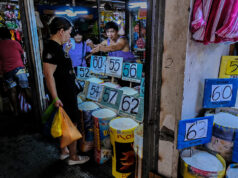Outsourcing firms, POGOs fuel office space demand
EXPANSION of outsourcing companies in the first nine months of 2018, coupled with the continued growth of offshore gaming operators, continued to fuel the robust demand for office space in Metro Manila.
Colliers International noted the Philippine office sector remained strong with a net take-up of 810,000 square meters (sq.m.) during January to September period, more than double the 370,000 sq.m. recorded a year ago.
In the fourth quarter, Colliers projects a net take-up of 344,000 sq.m., which will boost the full-year target to an all-time high of 1.15-million sq.m. Colliers earlier projected net take-up to reach 1.06-million sq.m. by the end of the year.
Colliers attributed the demand to the expansion of outsourcing companies in the first three quarters, compared to last year when the outsourcing sector slowed down.
In Tholons’ Global Services Index 2018 which ranked the top outsourcing destinations, the Philippines ranked second after India. In 2017, the Philippines was in third place.
Joey Roi H. Bondoc, manager of research at Colliers International, told BusinessWorld that outsourcing companies have regained confidence in doing business in the Philippines.
“They realized that it’s more profitable to just continue opening here in the Philippines. If they don’t do that, there is no business. We are seeing expansion… even outside of Metro Manila. These companies have been expanding in Cebu, Clark,” Mr. Bondoc said.
“For 2018, we are seeing rebound from BPOs… 42% of total transactions as of the first three quarters if from the BPO,” he added.
Colliers noted that demand from both business process outsourcing (BPO) and knowledge process outsourcing companies (KPO) accounted for 42% or 480,000 sq.m. of total transactions made during the first three quarters of 2018.
Non-outsourcing companies accounted for a third of total transactions during the same period, which include engineering, pharmaceutical, advertising, online lending, construction, and insurance services.
In a separate report, Pronove Tai International Property Consultants said the information technology and business process management (IT-BPM) sector “made waves” in the third quarter. It cited lease transactions by multinational firms such as JPMorgan Chase, Thomson Reuters, WNS Global Services and Alorica.
For the third quarter, Pronove Tai noted high pre-leasing transactions accounted for 102,000 sq.m. of the 312,000 sq.m. of the transactions.
“While it helped that the Filipinos continued to upskill, it certainly did not hurt that the TRABAHO bill has been postponed,” Monique Cornelio-Pronove, chief executive officer of Pronove Tai, was quoted as saying.
Outsourcing firms held back on expansion plans last year over fears that tax perks will be removed under the government’s proposed tax reform law.
The Tax Reform for Attracting Better and High-Quality Opportunities (TRABAHO) bill, which aimed to rationalize tax incentives, was seen hurting the BPO industry’s growth.
While the bill was approved on final reading by the House of Representatives, the Senate has suspended deliberations on the measure. Key legislators earlier indicated that the TRABAHO bill is not part of the 17th Congress’ priority agenda before it concludes in mid-2019.
POGOs
Alongside outsourcing firms, Philippine Offshore Gaming Operators (POGOs) continued to drive office supply demand during the third quarter.
Pronove Tai noted POGOs accounted for 26% or 82,000 sq.m. of actual transactions in the third quarter. Take-up by POGOs increased by 61% quarter-on-quarter.
The Bay Area, which refers to the reclaimed land in Pasay-Parañaque in front of Manila Bay, was the most popular location for POGOs. It accounted for 72% of transactions during the period.
Pronove Tai cited the Bay Area and Muntinlupa as the “districts to watch out for.” The Bay Area posted a 0.1% vacancy during the July to September period, while Muntinlupa’s vacancy rate was 4%.
Colliers’ Mr. Bondoc agreed, noting that with vacancy in Metro Manila at 5%, many POGOs are looking to expand in other areas such as Cebu, Laguna, and Clark.
“It is increasing… As you can see, they are occupying 10,000, 20,000, 30,000 sq.m. in a single transaction and the proof of their operations and office space absorption expanding previously, they were concentrated in the Bay Area… but starting mid-2017, they are now operating in fringes of Makati CBD, Fort Bonifacio… Some are looking at Quezon City as well. So, that’s proof of how these POGOs have been expanding,” Mr. Bondoc said.
As of September 2018, there were 57 approved POGOs in the Philippines. The Philippine Amusement and Gaming Corp. (PAGCOR) is expecting to generate P65 billion in gaming revenues from the POGOs, which is 13% higher than the P57.34-billion revenue in 2017. — Vincent Mariel P. Galang



